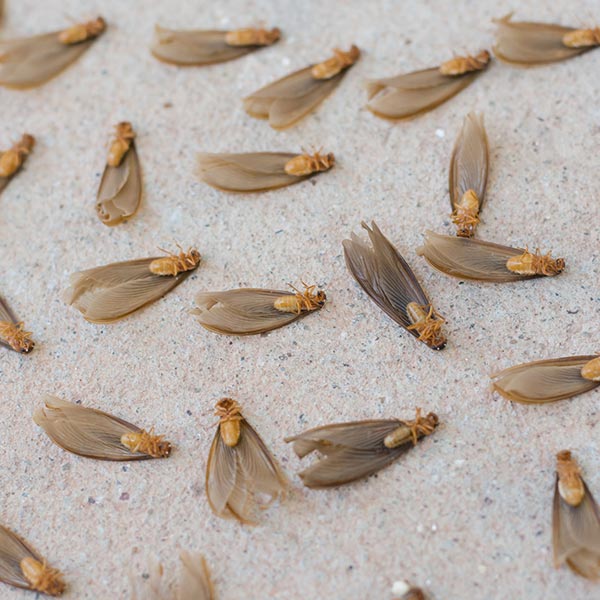 For most of the summer, rain means green grass and flourishing gardens, but for us, as pest managers, it means the beginning of the termite season. Termites are active all year round but when a bit of warm wet weather kicks in so do the termites. Our phones ring off the hook, the community Facebook pages are full of “what are these strange insects?” posts, and daily emails from clients who have woken up to a house full of wings!
For most of the summer, rain means green grass and flourishing gardens, but for us, as pest managers, it means the beginning of the termite season. Termites are active all year round but when a bit of warm wet weather kicks in so do the termites. Our phones ring off the hook, the community Facebook pages are full of “what are these strange insects?” posts, and daily emails from clients who have woken up to a house full of wings!
These winged invaders are termite reproductives or what we refer to in the trade as “alates”. These are future kings and queens who have emerged from a mature termite colony nearby in the hope of starting a new colony. These alates have been developing a way in these nests waiting for when the weather conditions are just right to emerge on mass. Termite alates are poor flyers so they soon hit the ground, drop their wings and go in search of a suitable site in the hope of starting a new nest. To most homeowners this is an extremely scary thought, however, the reality is only a very, very small percentage survive and find somewhere suitable to start a new colony. So, there is no need to panic, but it is a very good reminder that you live in an extremely high termite activity area, and we need to be proactive in regard to termite management.
The biggest concern is however that the termite alates have not emerged from a colony within your house. As a rule of thumb if you are confronted with a few hundred alates within your home it is most likely they have been attracted to a light source within your house and simply crawled in under the doors, or through downlights, however, if you are confronted with several thousand alates within your home, it is a possibility they have emerged from termite workings within your home. When this is the case we strongly recommend a visual termite inspection by a licensed termite manager such as Laguna Pest Control. A visual termite inspection is not just about trying to detect termites but also about identifying conditions conducive to termite activity and ways you can reduce these conducive conditions. If you have any concerns at all, please do not hesitate to contact us.

